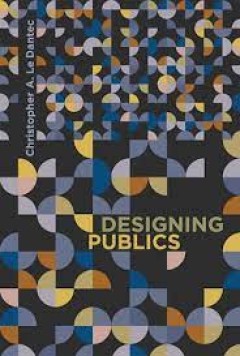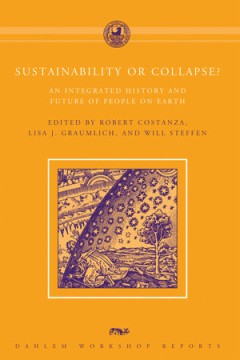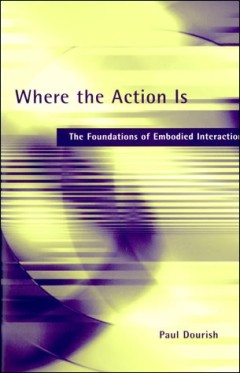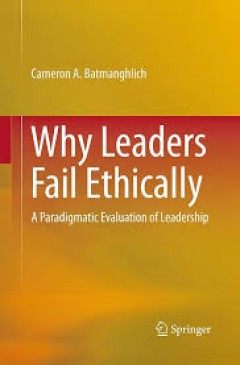Filter by

Embodying Design: An Applied Science of Radical Embodied Cognition
In this book, Christopher Baber uses embodied cognition as a lens through which to view both how designers engage in creative practices and how people use designed artifacts. This view of cognition as enactive, embedded, situated, or distributed, without recourse to internal representations, provides a theoretical grounding that makes possible a richer account of human interaction with technolo…
- Edition
- -
- ISBN/ISSN
- 9780262369886
- Collation
- -
- Series Title
- -
- Call Number
- -

Designing publics
Contemporary computing technologies have thoroughly embedded themselves in every aspect of modern life -- conducting commerce, maintaining and extending our networks of friends, and mobilizing political movements all occur through a growing collection of devices and services designed to keep and hold our attention. Yet what happens when our attention needs to be more local, collective, and focu…
- Edition
- -
- ISBN/ISSN
- 9780262337083
- Collation
- 1 online resource (xv, 151 pages).
- Series Title
- -
- Call Number
- -

Sustainability or Collapse?: An Integrated History and Future of People on Earth
Report of the 96th Dahlem Workshop on Integrated History and Future of People on Earth (IHOPE) Berlin, June 12-17, 2005."Scholars from a range of disciplines develop an integrated human and environmental history over millennial, centennial, and decadal time scales and make projections for the future.Human history, as written traditionally, leaves out the important ecological and climate context…
- Edition
- -
- ISBN/ISSN
- 9780262270861
- Collation
- 1 online resource (xxii, 495 pages) :illustrations.
- Series Title
- -
- Call Number
- -

Where the Action Is: The Foundations of Embodied Interaction
Computer science as an engineering discipline has been spectacularly successful. Yet it is also a philosophical enterprise in the way it represents the world and creates and manipulates models of reality, people, and action. In this book, Paul Dourish addresses the philosophical bases of human-computer interaction. He looks at how what he calls "embodied interaction"—an approach to interactin…
- Edition
- -
- ISBN/ISSN
- 9780262256056
- Collation
- -
- Series Title
- -
- Call Number
- -

https://direct.mit.edu/books/book/2413/Windows-and-MirrorsInteraction-Design-…
The experience of digital art and how it is relevant to information technology.In Windows and Mirrors: Interaction Design, Digital Art, and the Myth of Transparency, Jay David Bolter and Diane Gromala argue that, contrary to Donald Norman's famous dictum, we do not always want our computers to be invisible "information appliances." They say that a computer does not feel like a toaster or a vacu…
- Edition
- -
- ISBN/ISSN
- 9780262268998
- Collation
- 1 online resource (xi, 182 pages) :illustrations.
- Series Title
- -
- Call Number
- -

Civic Ecology: Adaptation and Transformation from the Ground Up
Stories of environmental stewardship in communities from New Orleans to Soweto accompany an interdisciplinary framework for understanding civic ecology as a global phenomenon.OCLC-licensed vendor bibliographic record.
- Edition
- -
- ISBN/ISSN
- 9780262327169
- Collation
- 1 online resource :illustrations.
- Series Title
- -
- Call Number
- -

Why Leaders Fail Ethically A Paradigmatic Evaluation of Leadership
Contrary to popular conceptions that ethical failures in leadership are correlated with economic downturns and other stressful market conditions, this book argues that such transgressions are an intrinsic element of leadership, as it is defined under the current prevailing paradigm. In recent years the crisis of failures in ethical leadership across organizations, particularly corporations, …
- Edition
- -
- ISBN/ISSN
- 978-3-319-12733-0
- Collation
- -
- Series Title
- -
- Call Number
- -

Whole-Body Impedance Control of Wheeled Humanoid Robots
Introducing mobile humanoid robots into human environments requires the systems to physically interact and execute multiple concurrent tasks. The monograph at hand presents a whole-body torque controller for dexterous and safe robotic manipulation. This control approach enables a mobile humanoid robot to simultaneously meet several control objectives with different pre-defined levels of priorit…
- Edition
- -
- ISBN/ISSN
- 978-3-319-40557-5
- Collation
- -
- Series Title
- -
- Call Number
- -

Empowering Users through Design Interdisciplinary Studies and Combined Appro…
At the crossroads of various disciplines, this collective work examines the possibility of a new end-user “engagement” in ongoing digital/technological products and services development. It provides an overview of recent research specifically focused on the user’s democratic participation and empowerment. It also enables readers to better identify the main opportunities of participatory d…
- Edition
- 1
- ISBN/ISSN
- 978-3-319-13018-7
- Collation
- 11 b/w illustrations, 57 illustrations in colour
- Series Title
- -
- Call Number
- -

Business and Security Sector Reform the Case for Corporate Security Respons…
Challenges to security and human rights involving extractive and other industries are addressed in a framework known as business and human rights (BHR), which shares many challenges and goals with SSR. This paper describes the grounds where BHR and SSR coincide in principles, actors and activities and which synergies can be built on that base. Opportunities for bridging BHR and SSR are drawn fr…
- Edition
- 1
- ISBN/ISSN
- 9781911529408
- Collation
- -u
- Series Title
- -
- Call Number
- -
 Computer Science, Information & General Works
Computer Science, Information & General Works  Philosophy & Psychology
Philosophy & Psychology  Religion
Religion  Social Sciences
Social Sciences  Language
Language  Pure Science
Pure Science  Applied Sciences
Applied Sciences  Art & Recreation
Art & Recreation  Literature
Literature  History & Geography
History & Geography